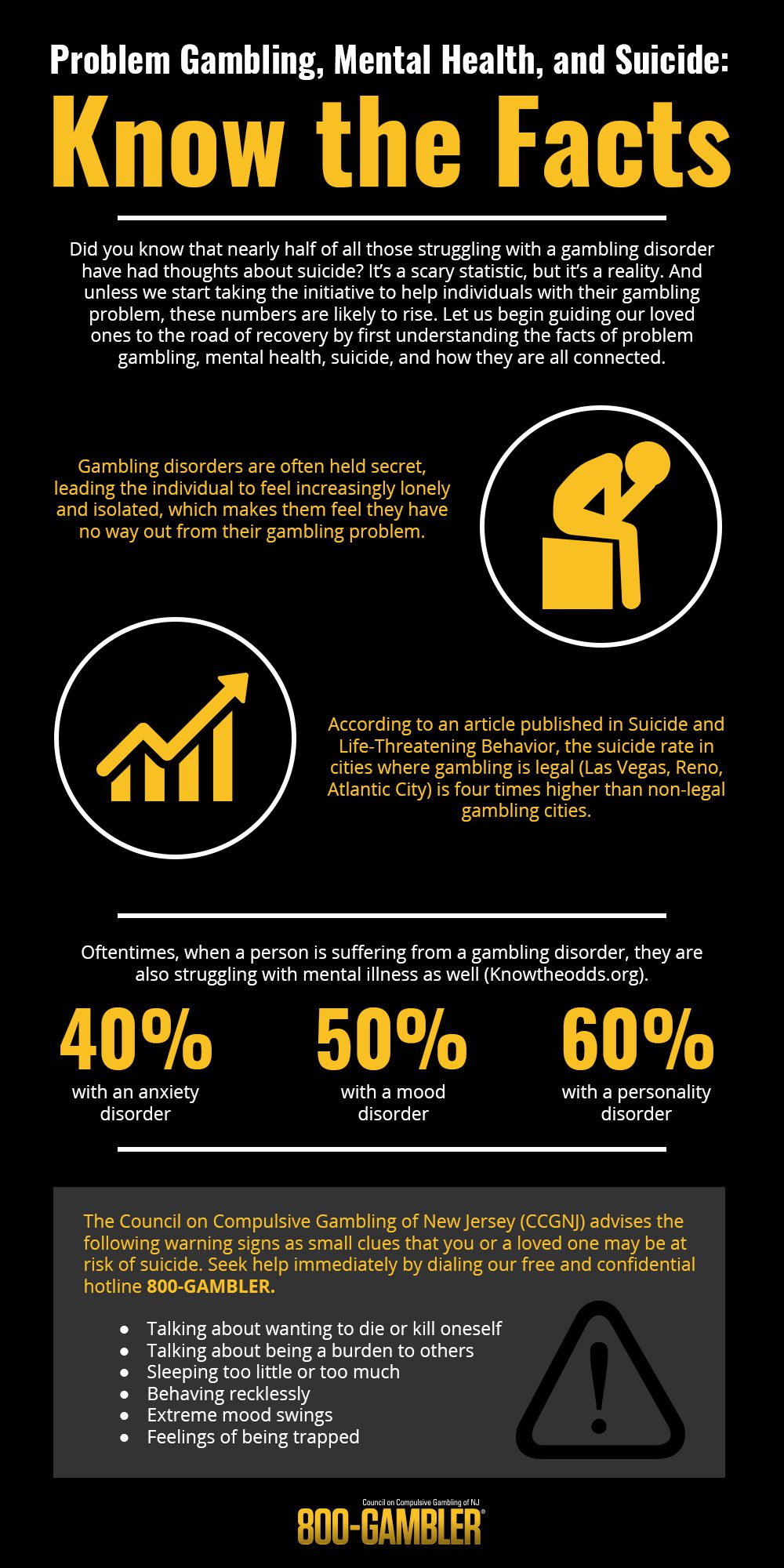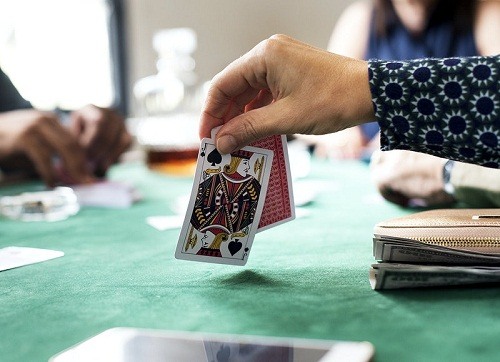Given the subtle nature of gambling problems,
how can you identify someone who is at risk for compulsive gambling?
Is restless or irritable when attempting to cut down or stop gambling. Gambles as a way of escaping from problems or relieving dysphoric mood (e.g., feelings of helplessness, guilt, anxiety, or depression). After losing money gambling, often returns another day in order to get even ('chasing one's losses'). However, gambling affects the brain in a similar way as drugs or alcohol, activating the same areas of the brain and giving people a similar high. It's equally as damaging and just as compulsive – especially given the immediate access to gambling through smart phones. The consequences can affect families, careers, and lives just as severely. Here are the symptoms and signs of addiction to gambling. What are the Signs of Gambling Addiction? The fourth edition of the Diagnostic and Statistical Manual of Mental Disorders lists the following criteria for pathological gambling: preoccupation, tolerance, withdrawal, escape, chasing, lying, loss of control, illegal acts, risk of.

Signs Of Compulsive Gambling
Signs of gambling addiction can vary depending on the individual. If you notice yourself or a loved one showing any of these signs, it is important to seek consultation or help as soon as possible. Common signs of addiction include: Clouded judgment when placing bets.

The American Psychiatric Association's Diagnostic Statistical Manual of Mental Disorders (DSM-V), in 2013 made some significant changes in the way problem gambling was classified. The name changed from Pathological Gambling to Gambling Disorder and was reclassified under Addiction and Related Disorders. Diagnostic criteria (responding affirmatively to the questions below), were cut from 5 out of 10 to 4 out of 9 affirmative responses.

- Needs to gamble with increasing amounts of money in order to achieve the same level of excitement.
- Restless or irritable when attempting to cut down or stop gambling
- Repeated unsuccessful efforts to control, cut back or stop
- Preoccupied with gambling (reliving past gambling experiences, planning the next venture or thinking of ways in which to gamble)
- Often gambles when feeling distressed
- After losing money gambling, often returns another day to get even (chase one's loses)
- Lies to conceal the extend of involvement with gambling
- Jeopardized or lost a relationship or job
- Relies on others to provide money to relieve a desperate financial situation caused by gambling (bail out)
Problem gambling manifests differently depending on the specific population and context. Signs of problem gambling can be recognized in the workplace, in school or among older adults.
To help determine if you or someone you know is at risk for problem gambling, take the 2-minute risk test (below). If you think you need help or know someone that does, there are resources available. If you'd like to seek help immediately, please call the Minnesota Problem Gambling helpline at 1-800-333-4673 (HOPE).
Signs Of Gambling Addiction Mood Swings
Millions in ‘Sin Taxes' Flowing into Minnesota's coffers during COVID-19 Pandemic

Signs Of Compulsive Gambling
Signs of gambling addiction can vary depending on the individual. If you notice yourself or a loved one showing any of these signs, it is important to seek consultation or help as soon as possible. Common signs of addiction include: Clouded judgment when placing bets.
The American Psychiatric Association's Diagnostic Statistical Manual of Mental Disorders (DSM-V), in 2013 made some significant changes in the way problem gambling was classified. The name changed from Pathological Gambling to Gambling Disorder and was reclassified under Addiction and Related Disorders. Diagnostic criteria (responding affirmatively to the questions below), were cut from 5 out of 10 to 4 out of 9 affirmative responses.
- Needs to gamble with increasing amounts of money in order to achieve the same level of excitement.
- Restless or irritable when attempting to cut down or stop gambling
- Repeated unsuccessful efforts to control, cut back or stop
- Preoccupied with gambling (reliving past gambling experiences, planning the next venture or thinking of ways in which to gamble)
- Often gambles when feeling distressed
- After losing money gambling, often returns another day to get even (chase one's loses)
- Lies to conceal the extend of involvement with gambling
- Jeopardized or lost a relationship or job
- Relies on others to provide money to relieve a desperate financial situation caused by gambling (bail out)
Problem gambling manifests differently depending on the specific population and context. Signs of problem gambling can be recognized in the workplace, in school or among older adults.
To help determine if you or someone you know is at risk for problem gambling, take the 2-minute risk test (below). If you think you need help or know someone that does, there are resources available. If you'd like to seek help immediately, please call the Minnesota Problem Gambling helpline at 1-800-333-4673 (HOPE).